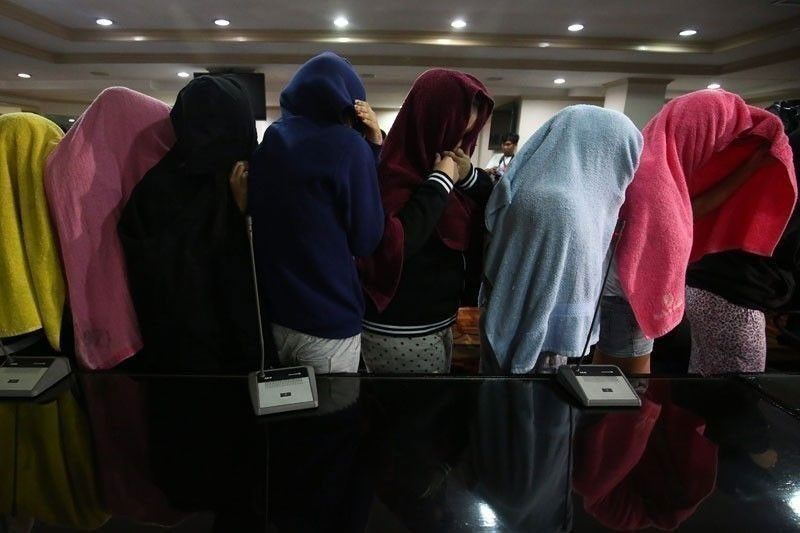Philippines again meets US standards in ending human trafficking

MANILA, Philippines — Although it failed to “vigorously investigate or prosecute” labor trafficking crimes, the Philippines was able to retain its Tier 1 status in the Trafficking in Persons report released by the US State Department.
The report released on Friday said the Philippines fully meets the minimum standards for the elimination of trafficking, with the government able to “demonstrate serious and sustained efforts during the reporting period, considering the impact of the COVID-19 pandemic.”
“These efforts included investigating more trafficking crimes, convicting more traffickers, amending its anti-trafficking law, increasing funding to the Inter-Agency Council Against Trafficking (IACAT) and sentencing nearly all traffickers to significant prison terms,” read the report.
“The government approved a new NAP (National Action Plan against human trafficking) and consulted survivors during its development. Although the government meets the minimum standards, it did not vigorously investigate or prosecute labor trafficking crimes that occurred within the Philippines,” it added.
According to the US State Department, the Philippines identified fewer victims and prosecuted fewer traffickers over the past year.
Corruption and official complicity in trafficking crimes also remained significant concerns, which inhibited law enforcement action during the year.
Every year, the US classifies countries into four groups based on efforts to address human trafficking based on standards set by its Trafficking Victims Protection Act.
Tier 1 includes countries whose governments fully meet the minimum standards for the elimination of trafficking.
Tier 2 covers countries whose governments do not fully meet the standards, but are making significant efforts to comply, while in Tier 3 are countries with governments that do not fully meet the minimum standards and are not making significant efforts to do so.
Tier 3 countries may be subjected to certain restrictions on foreign assistance.
Bureau of Immigration (BI) Commissioner Norman Tansingco noted that the country has maintained its Tier 1 status for the eighth consecutive year.
As an active member of the IACAT, which is led by the Department of Justice (DOJ), Tansingco said the BI has played a crucial role in enhancing efforts to protect overseas Filipinos from human trafficking and labor exploitation abroad.
Through the IACAT, the bureau closely cooperates with law enforcement agencies, non-governmental organizations and other stakeholders to formulate and implement comprehensive anti-trafficking strategies.
Recently, the BI was the first to raise concerns about a human trafficking scheme that targeted Filipinos, enticing them to work in pseudo-call centers abroad, only to fall victim to a crypto scam ring.
“This recognition is the result of the joint effort of all members of the IACAT, which has been very active in combating trafficking on all fronts,” Tansingco said.
Expressing the BI’s unwavering dedication to safeguarding the welfare of Filipinos, he said: “We will continue to protect our kababayans from this modern-day slavery.”
Recommendations
In its latest report, the US State Department recommended to the Philippines to investigate and prosecute traffickers, including labor traffickers and complicit officials, and seek adequate penalties for convicted traffickers.
It also recommended increased efforts to proactively identify and assist labor trafficking victims as well as provide training to law enforcement, social service providers and labor inspectors on indicators of trafficking.
The US State Department said the government must also strengthen the capacity of local government units to provide reintegration services for trafficking survivors, including trauma-informed care, job training and in-country employment.
Other recommendations included increasing support to survivor engagement and programs that provide specialized care for trafficking victims, including child victims of online sexual exploitation, as well as ensure that victims receive court-ordered restitution and compensation ordered through civil judgments.
Another recommendation stated: “Increase resources for anti-trafficking task forces and law enforcement units to conduct timely investigations, coordinated operations and prosecutions while providing robust victim and witness assistance services.”— Mark Ernest Villeza
- Latest
- Trending


























